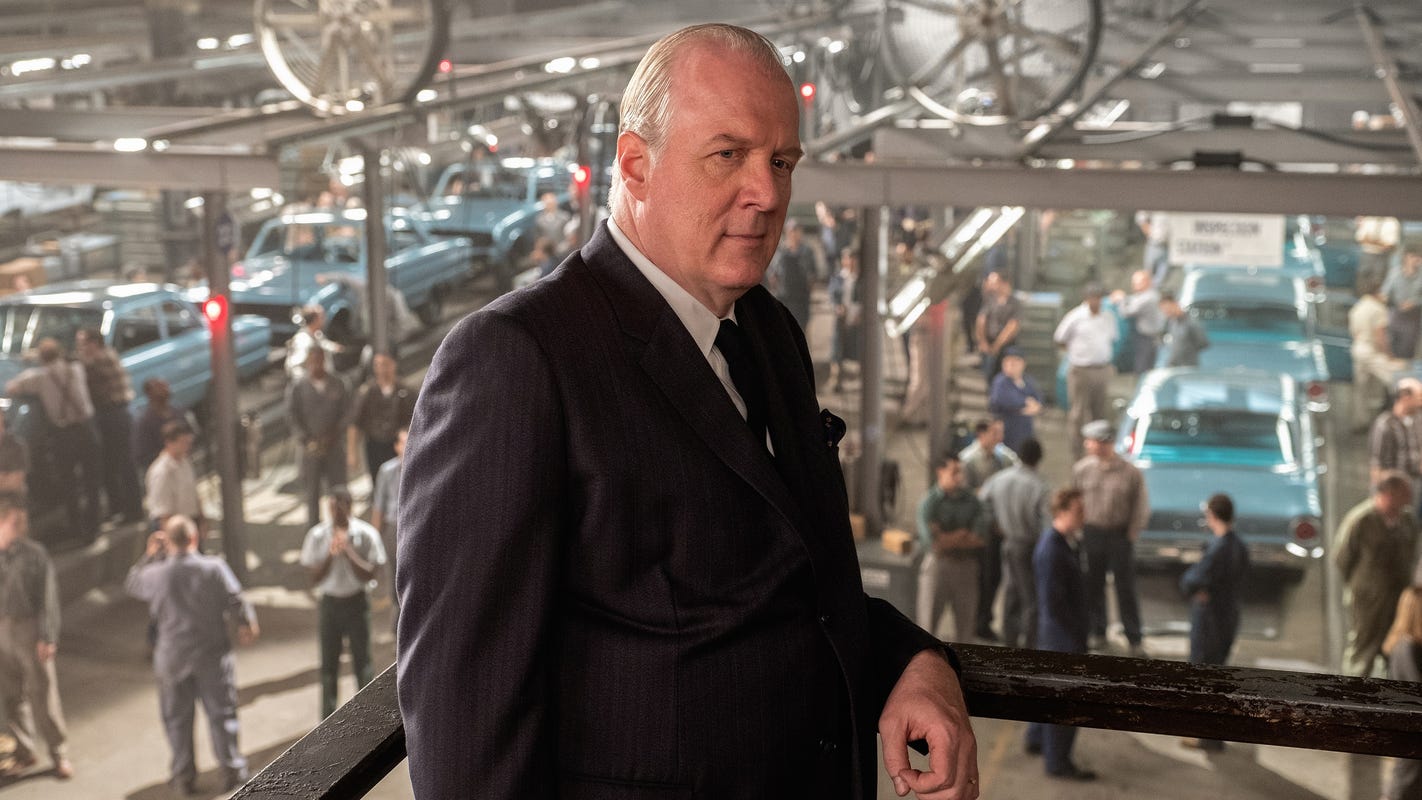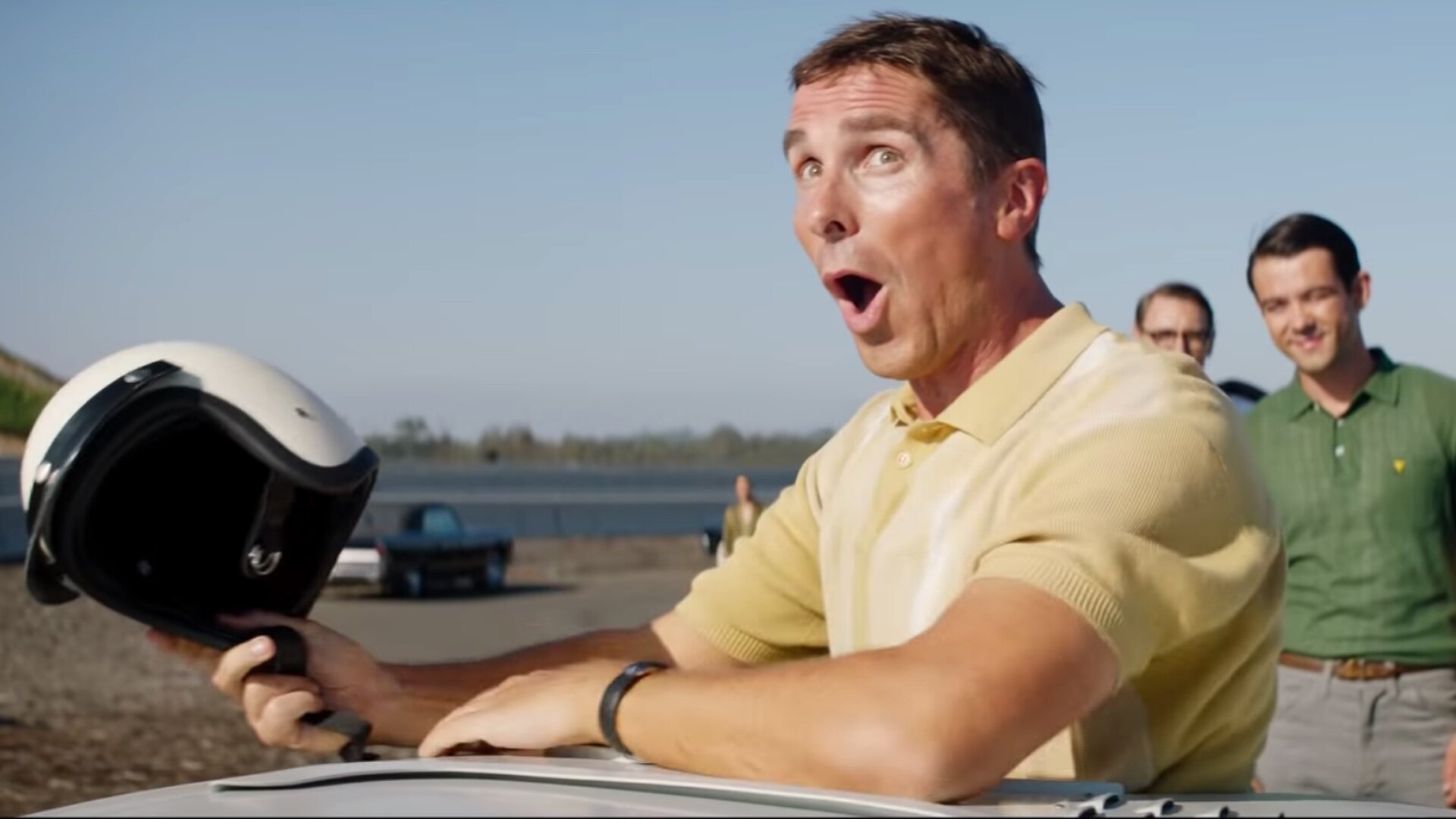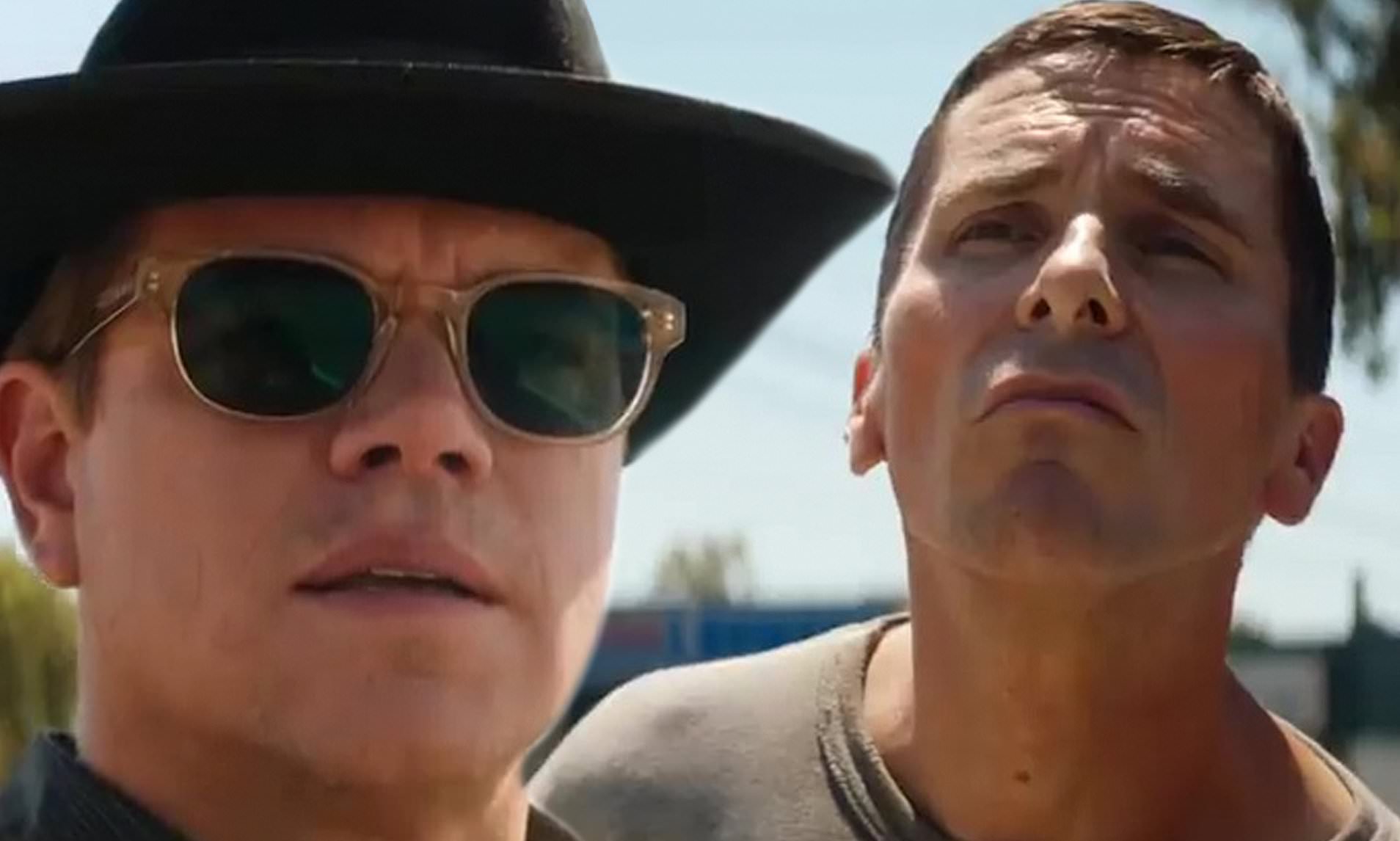There were definitely some reservations I had before entering into Ford v Ferrari. Chief among them being the film coming off as a two and a half-hour long ad, or circle jerk, for Ford Motors. Another less specific one being a common pitfall for autobiographical films: melodrama. Films like The Darkest Hour, The Iron Lady and J. Edgar, while bolstered by powerhouse performances the likes of Gary Oldman, Meryl Streep and Leonardo DiCaprio, tend to feel like bloated docudramas. Actors chewing the scenery to really bring out the most of their real-life characters. Either out of a misguided sense of reverence or a lack of faith in their roles.

But like Christian Bale’s Ken Miles, Ford v Ferrari expertly swerves past all the possible narrative potholes and tedium of boisterous characterization. All to deliver a satisfying, top-notch experience right from the starting line.
A trope that tends to dog autobiographical dramas is a tendency to lean into the idea of “Great Man History”. That a single individual like Steve Jobs or Caesar was solely responsible for a world-changing event. Ford v Ferrari’s DNA has elements of said idea while at the same time, it brilliantly subverts it. The plot of the film follows legendary retired racer, Carroll Shelby, as he employs the aid of speed savant and talented race car driver Ken Miles in a bid to beat Ferrari. After a game-changing pitch by Ford’s Lee Iaccoca, Henry Ford II decides that he’s sick of being seen as the everyman’s car brand.

He wants Ford to stand for something extraordinary and inspiring, no matter the cost. Along the way, Shelby and Miles must face off against challenges of Machiavellian schemes and personal vendettas from within the company. The duo, with a trusty crew of friends and family, will attempt to do the impossible. To beat Enzo Ferrari’s racers at France’s 24 Hours of Le Mans race with a Ford car. For Shelby and Miles, this truly will be the race of a lifetime!
There a million and one ways Logan director James Mangold could have screwed up the film, and Mangold has missed them all. From the jump, we gain critical insights into the characters of Matt Damon’s Carroll Shelby and Bale’s Ken Miles in the midst of their daily lives. Their activities themselves not seeming of great importance but rather the nature in which they’re framed are. We learn from Shelby’s apprehensions at his medical checkup that he’s a man refusing to slow down while at the same time he relies on his heart medication.

He knows he’s past his time of glory and yet still longs to be a part of something greater. Then we have Ken Miles casually and tartly explaining to an angry American why he’s wrecking his sports car by “driving it like a school teacher”. Not in that hot-shot, misguided-genius sort of way we see in films like The Social Network with Zuckerberg or in The Imitation Game’s Alan Turing. If I’m being honest, he’s really just an apek with a genuine love for race car driving but we’ll get to him later.
By far the greatest asset of this film is its editing. The way it cuts from the winding tension of reaching a corner before cutting back to its drivers’ faces of cracking composure before propelling us back into the fray is a thing of beauty. The timing in which these snaps happen feel almost as clean and thoughtful as Edgar Wright’s signature style. That’s not to say that Ford v Ferrari doesn’t have some moves of its own.

When the action kicks into the high gear with the screaming roar of metal death traps gliding down the tracks, the film soars. This rings especially true in the film’s third act with Shelby, Miles and team entering into the gladiatorial battle of attrition in France’s Le Mans race. That being said, the momentum of the race scenes can also be seen within the quieter moments of the film.
Mangold refreshingly implies character development without every outright screaming it into faces. In lingering frames, quiet ticks and gritted teeth, Mangold connotes great meaning with stunning economy. I wouldn’t be surprised if the film garners award nominations for its editing. Editors Michael McCusker and Andrew Buckland definitely deserve some credit for a job well done. The cinematic equivalent of an amazing pit stop crew.
Let’s not forget what’s drives the film forward though (yes, yes we really are milking these car puns here), Matt Damon and Christian Bale’s performance as Shelby and Miles. There’s wonderful chemistry between the two as both friends and co-workers. Rarely does Shelby ever lose his cool but when Miles gets one too many screw overs, he comes swinging for his mate. Damon was born to play a race car driving cowboy! Christian Bale truly is in his element here, playing a British American war veteran/mechanic/amateur-turned-professional race car driver. He’s crass, short-tempered, and a fantastic husband and father.

There wasn’t a single dishonest bone in the man’s body as far as I was concerned. His matter-of-fact demeanour and humble roots never dip into the realm of obnoxious (not to us anyway). His petty arrogance is tempered by an old-school sense of integrity. I reiterate once again. Christian Bale’s Ken Miles is the coolest uncle-ass apek I’ve seen in a long time! The duo’s foil in the form of Josh Lucas’ Leo Beebe did well enough as the caricature of a sycophantic, self-serving salaryman out for Miles. With each subsequent scene, my hatred for this man grows as he does everything in his power to hamper these two from making history.
It certainly helps that the actors have a great script to work off. It was co-written by Edge of Tomorrow writing brothers John-Henry Butterworth and Jez Butterworth, and Jason Keller. If you’re looking for animated monologues and speeches then you’ve come to the wrong place. Ford v Ferrari thoroughly shines in every scene with witty dialogue, well-placed moments of levity and restrained instances of intimacy.
Ken Miles isn’t going to go on some schpiel about the importance of family and taking life a quarter-mile at a time ala Dominic Toretto. There are only a few moments in which the film indulges in the grandeur of the sport in analogies of losing one self’s in the speed. At the very least, it makes good use of it near the end of the film.
While Ford v Ferrari doesn’t quite join films like Bronson in the high places of revolutionary cinema, it manages to embody the very best of the autobiographical genre. If the purpose of the genre was to bring us closer to an inaccessible corner of reality mired in complexity, then the film achieves this with flying colours. In its simplicity, it has achieved perfection. In its single-minded focus to tell us a story of ego, friendship and obsession, Ford v Ferrari has cut through the drudgery that so often accompanied films of the genre. Much like the Ford GT40 in its heyday, the film is the very best of its field. Operating with impressive efficiency and at thrilling speeds.
Ford v Ferrari is currently playing in Malaysian cinemas.
Follow us on Instagram, Facebook, Twitter or Telegram for more updates and breaking news.


